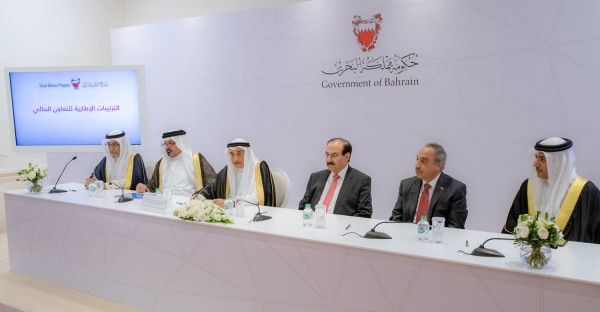Bahrain Roundup 2020: Gov't Mourns Financial Balance Program, Seeks Alternatives

2021-01-08 - 9:21 p
Bahrain Mirror (Roundup 2020): 2020 was a very difficult year for Bahrain which aggravated its financial crisis and put it on the brink of financial collapse and bankruptcy. Bahrain decided to review the economic program implemented on the country, which is known as the financial balance program, the Ministry of Finance announced in October.
"The Ministry of Finance and National Economy commissioned the American Lazard company to review the financial balance program for 425,000 dinars."
Lazard Ltd is a financial advisory and asset management firm that engages in investment banking, asset management and other financial services, primarily with institutional clients. It is the world's largest independent investment bank, with principal executive offices in New York City, Paris and London. Lazard was founded in 1848 and operates from more than 40 cities across 25 countries in North America, Europe, Asia, Australia, and Central and South America.
The most prominent steps of the financial balance program was represented in the voluntary retirement program that was launched in 2018, through which 8025 Bahrainis retired. The government said that this step would save about $166 million a year, however, this project began with the problem of not having enough funds to pay rewards for those wishing to retire. Thus, the government decided to seize 230 million dinars from the "Unemployment Fund".
Nonetheless, Bahrain's ambitious project wasn't destined to survive after the oil (the main and only source of state income) lost 25% of its value due to the war of prices Saudi Arabia launched against Russia through, flooding the market with oil (Bahraini oil revenues declined 35% during the first half of the year). Then came the Coronavirus pandemic that paralyzed the economic movement in the world.
Bahrain suffered from a shortage of funds and drop in its foreign exchange reserves to record levels in April as they reached 290 million dinars (only $768.82 million), the lowest level of reserves since 1990. Bahrain was forced to borrow $1 billion in March to pay bonds worth $1.25 billion. It also issued $4 billion in bonds ($2 billion in May and another 2 billion in September), and withdrew 215 million dinars from the "Unemployment Fund" to pay salaries of Bahrainis in the private sector during the months of April, May and June and also withdrew 169 million dinars ($450 million) from the Future Generations Reserve Fund to finance urgent expenses worth of 177 million dinars ($479 million) to cope with the pandemic.
In August, the Bahraini government approved increasing the debt ceiling from 13 to 15 billion dinars ($39.89 billion). It is expected that the public debt will reach 130% of Bahrain GDP. Bahrain's fiscal deficit is expected to jump to 15.7% of gross domestic product this year from 10.6% in 2019, according to the International Monetary Fund.
There are real concerns that the new economic program will consist of a number of legislations that would impose additional taxes or lift direct and indirect subsidies, in the absence of any real plan to diversify sources of income and reduce dependence on oil as a major income source.
- 2021-07-08Bahrain Roundup 2020: Coronavirus Paralyzes Daily Life, Claims Lives of 352 People
- 2021-06-12Bahrain Roundup 2020: Normalization with Israel...When Sovereignty is Lost
- 2021-06-11Bahrain Roundup 2020: Interior Ministry Turns Ashura into Security Issue, Launches Campaign under Coronavirus Pretext
- 2021-06-11Bahrain 2020 Roundup Editorial: A Decade
- 2021-02-13Bahrain Roundup 2020: 111 Violations of Media Freedoms, 51 Judicial Measures, 25 Arrests and 12 Summonses